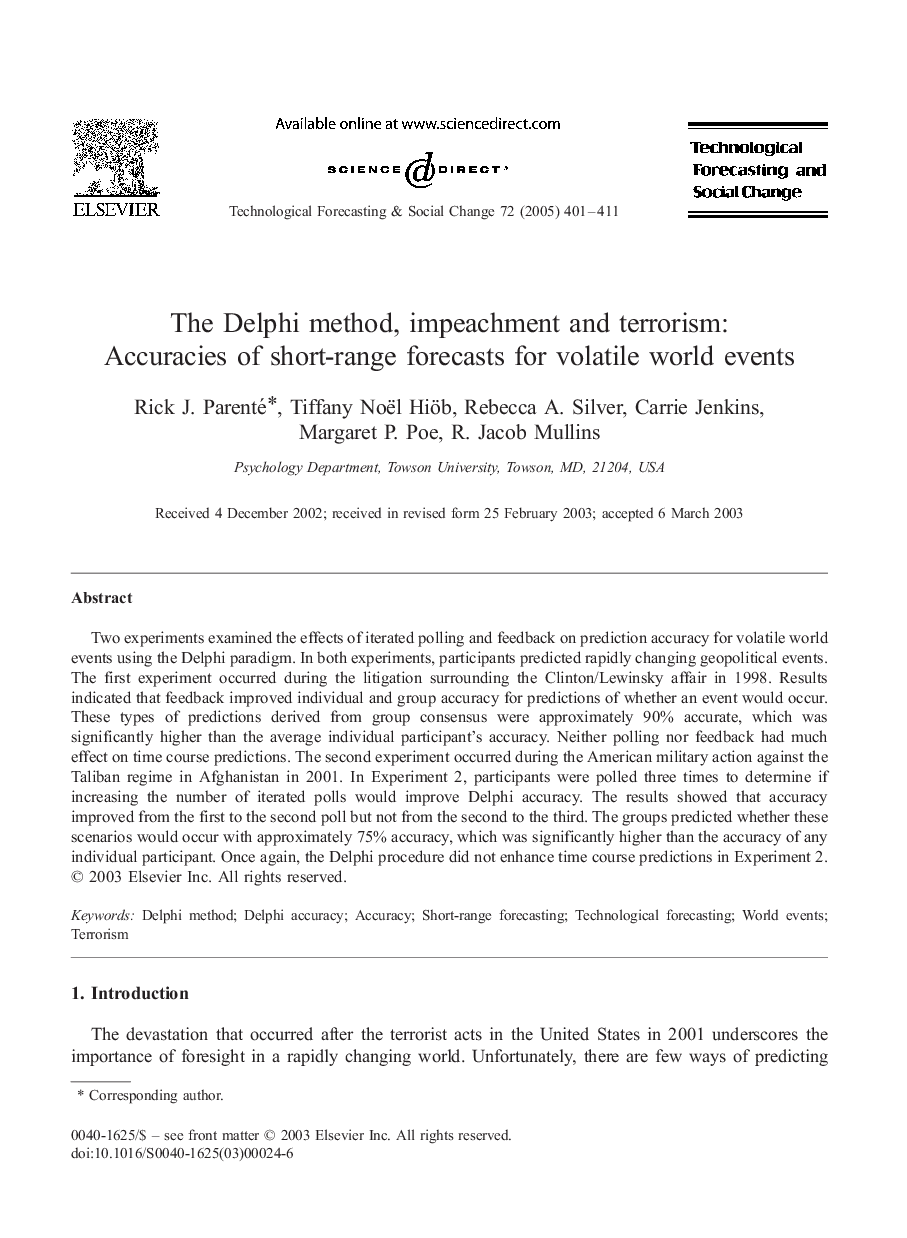| Article ID | Journal | Published Year | Pages | File Type |
|---|---|---|---|---|
| 10442621 | Technological Forecasting and Social Change | 2005 | 11 Pages |
Abstract
Two experiments examined the effects of iterated polling and feedback on prediction accuracy for volatile world events using the Delphi paradigm. In both experiments, participants predicted rapidly changing geopolitical events. The first experiment occurred during the litigation surrounding the Clinton/Lewinsky affair in 1998. Results indicated that feedback improved individual and group accuracy for predictions of whether an event would occur. These types of predictions derived from group consensus were approximately 90% accurate, which was significantly higher than the average individual participant's accuracy. Neither polling nor feedback had much effect on time course predictions. The second experiment occurred during the American military action against the Taliban regime in Afghanistan in 2001. In Experiment 2, participants were polled three times to determine if increasing the number of iterated polls would improve Delphi accuracy. The results showed that accuracy improved from the first to the second poll but not from the second to the third. The groups predicted whether these scenarios would occur with approximately 75% accuracy, which was significantly higher than the accuracy of any individual participant. Once again, the Delphi procedure did not enhance time course predictions in Experiment 2.
Related Topics
Social Sciences and Humanities
Business, Management and Accounting
Business and International Management
Authors
Rick J. Parenté, Tiffany Noël Hiöb, Rebecca A. Silver, Carrie Jenkins, Margaret P. Poe, R.Jacob Mullins,
